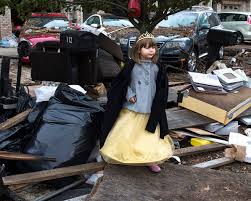Government Grants
Business Grants
Home Owner Programs
Federal Programs
About Us
Science of Learning
The Science of Learning program supports potentially transformative basic research to advance the science of learning.
The goals of the SL Program are to develop basic theoretical insights and fundamental knowledge about learning principles, processes and constraints.
Projects that are
integrative and/or interdisciplinary may be especially valuable in moving basic understanding of learning forward but research with a single discipline or methodology is also appropriate if it addresses basic scientific questions in learning.
The possibility of developing connections between proposed research and specific scientific, technological, educational, and workforce challenges will be considered as valuable broader impacts, but are not necessarily central to the intellectual merit of proposed research.
The program will support research addressing learning in a wide range of domains at one or more levels of analysis including:
molecular/cellular mechanisms; brain systems; cognitive affective, and behavioral processes; and social/cultural influences.
The program supports a variety of methods including:
experiments, field studies, surveys, secondary-data analyses, and modeling.
Examples of general research questions within scope of the Science of Learning program include:
•How does learning transfer from one context to another or from one domain to another? How is learning generalized from specific experiences? What is the basis for robust learning that is resilient against potential interference from new experiences? How is learning consolidated and reconsolidated from transient experience to stable memory?
•How does the structure of the learning environment impact rate and efficacy of learning? For example, how do timing, content, learning context, developmental time point and type of engagement (e.g., active learning, group learning) impact learning processes and outcomes?
•How can we integrate research findings and insights across levels of analysis, relating understanding of cellular and molecular mechanisms of learning in the neurons to circuit and systems-level computations of learning in the brain, to cognitive, affective, social, and behavioral processes of learning? What concepts, tools, or questions will provide the most productive linkages of across levels of analysis?
•How can insights from biological learners contribute and derive new theoretic perspectives to computational learning systems, neuromorphic engineering, materials science, and nanotechnology? Biological and non-biological systems and social systems can all display learning.
What can integration across these different domains contribute to a general understanding of learning?
The goals of the SL Program are to develop basic theoretical insights and fundamental knowledge about learning principles, processes and constraints.
Projects that are
integrative and/or interdisciplinary may be especially valuable in moving basic understanding of learning forward but research with a single discipline or methodology is also appropriate if it addresses basic scientific questions in learning.
The possibility of developing connections between proposed research and specific scientific, technological, educational, and workforce challenges will be considered as valuable broader impacts, but are not necessarily central to the intellectual merit of proposed research.
The program will support research addressing learning in a wide range of domains at one or more levels of analysis including:
molecular/cellular mechanisms; brain systems; cognitive affective, and behavioral processes; and social/cultural influences.
The program supports a variety of methods including:
experiments, field studies, surveys, secondary-data analyses, and modeling.
Examples of general research questions within scope of the Science of Learning program include:
•How does learning transfer from one context to another or from one domain to another? How is learning generalized from specific experiences? What is the basis for robust learning that is resilient against potential interference from new experiences? How is learning consolidated and reconsolidated from transient experience to stable memory?
•How does the structure of the learning environment impact rate and efficacy of learning? For example, how do timing, content, learning context, developmental time point and type of engagement (e.g., active learning, group learning) impact learning processes and outcomes?
•How can we integrate research findings and insights across levels of analysis, relating understanding of cellular and molecular mechanisms of learning in the neurons to circuit and systems-level computations of learning in the brain, to cognitive, affective, social, and behavioral processes of learning? What concepts, tools, or questions will provide the most productive linkages of across levels of analysis?
•How can insights from biological learners contribute and derive new theoretic perspectives to computational learning systems, neuromorphic engineering, materials science, and nanotechnology? Biological and non-biological systems and social systems can all display learning.
What can integration across these different domains contribute to a general understanding of learning?
Who's Eligible
Obtain Full Opportunity Text:
NSF Program Desccription PD-16-004Y
Additional Information of Eligibility:
Not Available
Full Opportunity Web Address:
http://www.nsf.gov/funding/pgm_summ.jsp?pims_id=5567
Contact:
NSF grants.gov supportgrantsgovsupport@nsf.gov
Agency Email Description:
If you have any problems linking to this funding announcement, please contact
Agency Email:
grantsgovsupport@nsf.gov
Date Posted:
2016-09-13
Application Due Date:
2017-01-18
Archive Date:
2027-08-13
Social Entrepreneurship
Spotlight
Building a Million Dollar Company Where Everyone Counts

Ganesh Natarajan is the Founder and Chairman of 5FWorld, a new platform for funding and developing start-ups, social enterprises and the skills eco-system in India. In the past two decades, he has built two of India’s high-growth software services companies – Aptech and Zensar – almost from scratch to global success.

